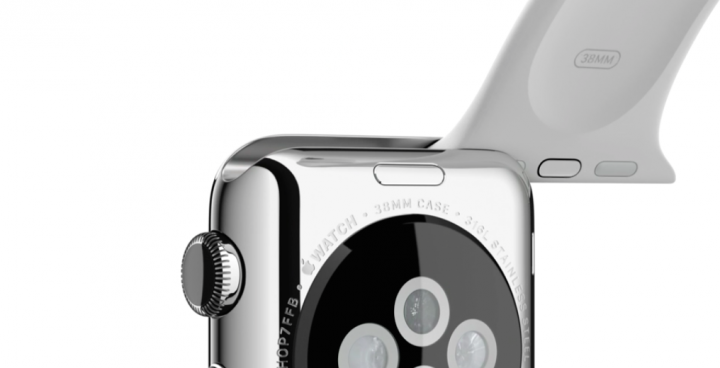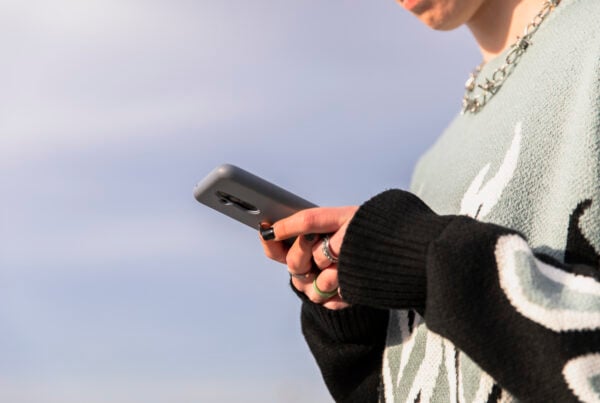 Each week the MEF team curates mobile stories from around the world. Essential news, the latest market insight & data nuggets, the Global News Round-up offers an instant international mobile content and commerce snapshot. Unsurprisingly, this week the mobile news was dominated by Apple’s announcement of the new iPhones and Apple Watch, along with a host of new services. Here’s everything you need to know – for mobile leaders’ reactions to Apple Pay, check out our Industry Views.
Each week the MEF team curates mobile stories from around the world. Essential news, the latest market insight & data nuggets, the Global News Round-up offers an instant international mobile content and commerce snapshot. Unsurprisingly, this week the mobile news was dominated by Apple’s announcement of the new iPhones and Apple Watch, along with a host of new services. Here’s everything you need to know – for mobile leaders’ reactions to Apple Pay, check out our Industry Views.
Global News Stories
 The 15 most important announcements from the Apple Watch, iPhone 6 event
The 15 most important announcements from the Apple Watch, iPhone 6 event
The Verge
A big iPhone, mobile payments, and a smartwatch — Apple has finally delivered on three of its most longstanding promises about the future of its mobile business. The 4.7-inch iPhone 6 is now accompanied by the 5.5-inch 6 Plus, and both models come with NFC and the “Apple Pay” tap-to-pay system. And the Apple Watch is ready to compete with Google’s Android Wear, with a range of customizable designs and a completely new interface.
Apple is definitely playing catch-up here—it’s adopting features that Google and others announced months or years ago. But this is also how the company has succeeded with products like the iPad: perfect the technology, and then bowl over the competition. We’ve sat through a string of boring Apple events, but this wasn’t one of them.
Has Apple Just Changed the Mobile Payments Game Forever?

Mobile Marketing Magazine
Among the considerable fireworks of yesterday’s Apple launch event was the news that the iPhone 6 and 6 Plus (along with the new Apple Watch) would include a NFC antenna, and that Apple was finally entering the mobile payments market. NFC technology has been included in Android phones for over four years, and has cropped up in mobile designs for almost ten years, but has struggled to make a significant impact on people’s day-to-day lives in the way other innovations such as Bluetooth have. Along with QR codes, NFC has at times felt like the unloved step-child of the mobile industry, quickly headed towards obsolescence. However, Apple’s adoption of the technology may be the tipping point in how NFC is adopted.
Wall Street Betting To Cash In On Mobile Payments With Apple Pay
International Business Times
The Wall Street banks partnering with Apple Inc. on its new mobile payment system, including JPMorgan Chase & Co. (NYSE: JPM) and Bank of America Corp (NYSE:BAC), are betting the deal will lower fraud costs and expand the budding mobile-payment market, offering banks more opportunity to cash in on transactions, according to analysts familiar with the matter.
Apple (NASDAQ:AAPL) announced the new service, called Apple Pay, on Tuesday. Under deals reached with at least nine major banks as well as Visa Inc., Mastercard Inc. and American Express Co., Apple will collect a fee from banks each time shoppers wave an iPhone 6 or 6 Plus or Apple Watch instead of swiping credit or debit cards or entering credit or debit numbers online, Bloomberg reported.
 Apple Introduces WatchKit Developer Platform for Third-Party Apps
Apple Introduces WatchKit Developer Platform for Third-Party Apps
Mashable
Apple Watch will function with third-party apps but only via Apple’s new platform for developers who wish to create apps its first wearable: WatchKit. WatchKit allows developers to create custom notifications and home screen apps for Apple Watch. Developers can use the platform to create everything from custom interactive watch faces to new versions of the app. The company has already partnered with a few companies on early versions of apps for Apple Watch and Apple’s Kevin Lynch took the stage to show off some of the ways third-party developers have already taken advantage of WatchKit.
 Apple Watch unveiled, but health-related details scarce
Apple Watch unveiled, but health-related details scarce
Fierce Mobile Healthcare
Apple debuted its first wearable device, called Apple Watch, Tuesday afternoon–boasting that it’s the most “personalized device” the company has ever created. In announcing Apple Watch on stage, CEO Tim Cook said the device is, among other things, a “comprehensive health and fitness device.” The device offers gyroscopes, several sensors and an accelerometer for heartbeat and pulse rate monitoring. The watch, expected to be available in early 2015, can provide info on fitness aspects such as geographic elevation for runners. It will have two different apps: one for fitness and one for workouts.
 As Apple Moves into Health Apps, What Happens to Privacy?
As Apple Moves into Health Apps, What Happens to Privacy?
WSJ
With its foray into health, Apple AAPL +2.98% is entering a fraught legal and privacy terrain. Apple’s Tuesday event included three health-data plays: It introduced a smartwatch with sensors to double as a fitness device that can track steps, calories and heart rate, among other things. Its new mobile operating system, iOS 8, will include an app, Health, that is a dashboard for health and fitness information such as heart rate, calories burned, blood sugar and cholesterol, plus lab results and medications. And HealthKit, its recently announced repository for health and fitness data, can connect with doctors and other health-care providers. Health data are sensitive, and Apple hasn’t said a lot about how the data will be used, and protected. Apple did not respond to requests for comment Tuesday. Here are some issues:
 Premium wearables to push sales growth, say Juniper
Premium wearables to push sales growth, say Juniper
Computer Weekly
Premium wearable devices will push wearable revenues to $53.2bn by the year 2019, according to research firm Juniper. A study found that sales of smartwatches and smart glasses will treble by the year 2016 due to the number of well-known brands entering the space. Juniper’s research found consumers are unsure how wearables will be useful, with many claiming they were more reluctant to adopt wearables where they had similar functionality to smartphones. But a number of wearable devices have been released to provide customers with other services. For example, Barclaycard trailled data collection capabilities of its contactless payment band bPay last month.
Alibaba and Tencent are beating Apple Pay to the punch in China
Tech In Asia
With the mobile industry gearing up for Apple’s device launch day September 9, it’s a good time to take stock of the global smartphone market. The market has become much more competitive recently, particularly among smartphone brands. The two leaders, Apple and Samsung, are losing share to manufacturers out of China and elsewhere.
Australians set to adopt Apple iWallet in droves
Sunday Morning Herald
When it comes to technology, Australians have proven themselves among the first in the world to adapt to the newestgadgets and gizmos. And with the rumour mill in overdrive about Apple’s expected unveiling of a mobile payment system – aka the “iWallet” – on September 9, which would turn iPhones into a virtual purses, expectations are mounting that it could be a game-changer for the payment industry – especially in technology-friendly Australia. The rollout of credit card chips and “tap and go” suggests Australians will readily take to mobile payment. Again, Australians have already taken to the technology in droves. A July 2015 Australian Payments Clearing Association investigated the evolution of payment systems and revealed Australia has the highest use of contactless payment in the world.
Global News Round-up – These articles are not written by MEF and do not represent any views of individuals, members or the organisation.







